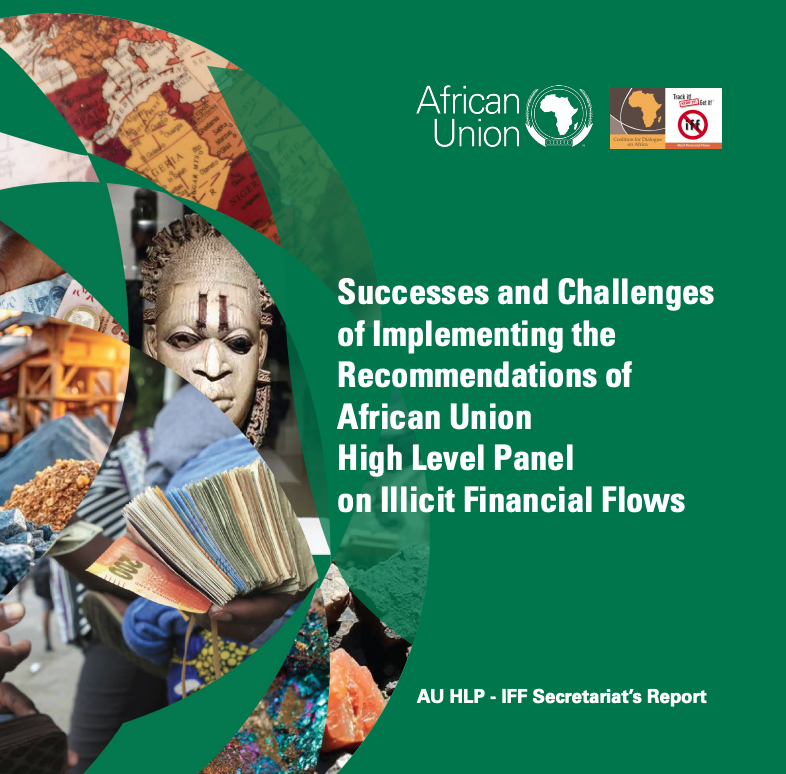
$88 billion disappears from the African continent each year, swallowed up by illicit financial flows (IFFs). This is revealed in a report published by the African Union at the end of July 2025, titled "Successes and Challenges of Implementing the Recommendations of African Union High Level Panel on Illicit Financial Flows". This news has obvious links to the Bolloré case, in which our Africa Restitution Collective (RAF) has been fighting with all its strength since March 2025.
A hemorrhage that hinders the continent's development
Africa suffers from a silent but massive financial hemorrhage. Each year, $88 billion leaves the continent in the form of illicit financial flows (IFFs), equivalent to 3.7% of African GDP. These alarming figures, revealed by the latest reports from the African Union and UNCTAD, bear witness to a dramatic reality: Africa is being drained of its vital resources to the detriment of its development.
And this situation has worsened considerably since the Mbeki report! In 2015, the African Union High Level Panel report on illicit financial flows - commonly known as the Mbeki report - estimated these losses at $50 billion annually. Today, according to recent UNCTAD data, this amount has jumped to $88 billion, an increase of more than 75% in less than a decade.
This alarming progression illustrates the failure of measures to combat these illicit practices, despite the recommendations of the 2015 report. Commercial activities account for 65% to 70% of these losses, primarily through price manipulation practices, tax evasion, and fraudulent transfers.
The multiple faces of illicit financial flows
Illicit financial flows (IFFs) take various forms that systematically drain African resources:
1. Illicit commercial practices, representing approximately 70% of IFFs
- Transfer pricing manipulation in global value chains
- Under-invoicing or over-invoicing of exports and imports
- Sophisticated tax evasion by multinationals
2. Institutional corruption
- Embezzlement of public funds
- Bribes in the allocation of public contracts
- Personal enrichment of political elites
3. Criminal activities
- Money laundering
- Trafficking of natural resources
- Terrorism financing
The African Union report has finally established a clear correlation between dependence on extractive industries and the incidence of IFFs. Countries rich in natural resources - oil, gold, diamonds, coltan - are particularly vulnerable to these illicit practices. This vulnerability is explained by several factors: the complexity of international value chains facilitates price manipulation; the opacity of extraction contracts allows fraudulent arrangements; the weak control capacity of African states in the face of multinationals.
The Bolloré case: symptom of a predatory system
Recent judicial developments perfectly illustrate these predatory mechanisms. In March 2025, the Africa Restitution Collective (RAF) filed a complaint against Vincent Bolloré, his son Cyrille, and their group for corruption, handling stolen goods, and asset laundering.
This complaint highlights a particularly revealing system of appropriating African infrastructure:
1. An empire built on alleged corruption
The concessions grouped within Bolloré Africa Logistics constitute "a substantial part of the enterprise value of this subsidiary, which was sold in 2022 for an amount of 5.7 billion euros" to the Italian-Swiss shipowner MSC. This colossal valuation relies largely on strategic African assets - ports, logistics infrastructure, transport networks - obtained through means we consider fraudulent, with the complicity of the authorities in place in the various countries concerned (Côte d'Ivoire, Guinea, Ghana, Togo, Cameroon).
2. A systemic appropriation model
The other aspect of the complaint concerns the alleged "laundering" of profits derived from concessions obtained in a presumably fraudulent manner in five African countries. This accusation reveals an economic model where initial corruption generates profits that are then "laundered" through complex legal structures.
Dramatic consequences for Africa
This annual loss of $88 billion particularly penalizes fragile sectors often lacking funded public policies, such as education, health, or industrial development.
To put these figures into perspective:
- $88 billion represents more than the official development assistance received by the entire continent
- this sum could finance the construction of thousands of hospitals, schools, and infrastructure projects
- it equals the estimated annual needs to achieve several Sustainable Development Goals in Africa
This creates a vicious cycle of underdevelopment:
- illicit financial flows (IFFs) deprive states of essential fiscal resources
- this budgetary shortage limits public investments
- the lack of infrastructure and public services hinders growth
- weak growth perpetuates dependence on natural resources
- this dependence facilitates new illicit financial flows (IFFs)
An existential battle for all of Africa
The fight against illicit financial flows is not simply a technical or accounting issue. It is an existential battle for Africa's future. With $88 billion lost annually - a sum that could radically transform the continent - Africa can no longer afford to suffer this hemorrhage in silence.
The Bolloré case and the efforts of the Africa Restitution Collective illustrate that awareness is underway. But to reverse the trend, unprecedented mobilization will be required: strengthened coordination between African states, reform of international financial systems, strengthening of judicial capacities, and above all, a determined political will to place Africa's interests at the heart of development policies.
The continent has multiple resources. It now needs the means to conserve them and use them for the benefit of its populations. This is Africa's major challenge of the 21st century.
Together, we can end impunity and build an Africa where transparency and good governance are the norm.
